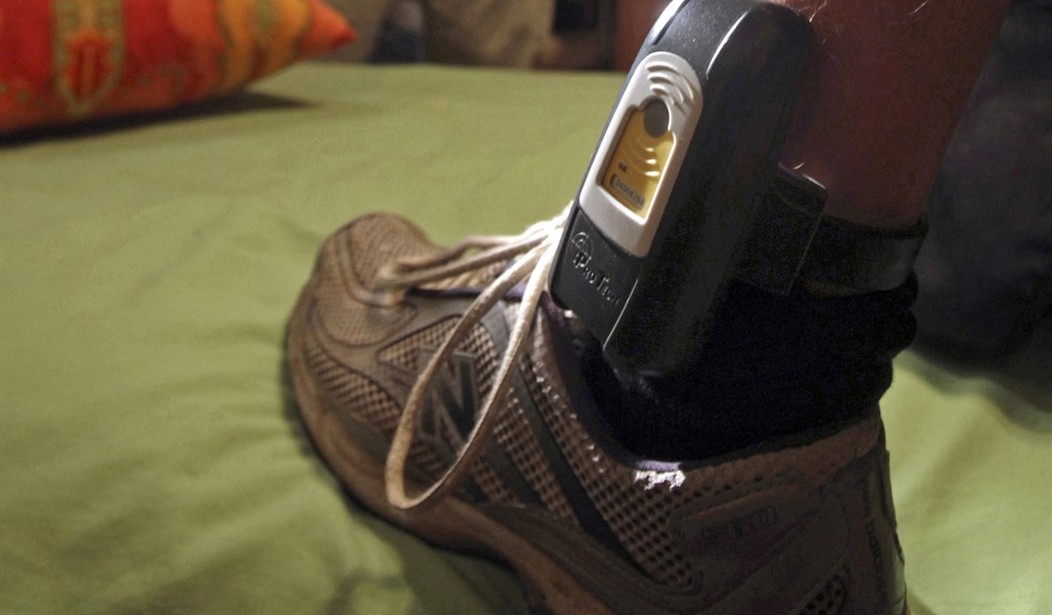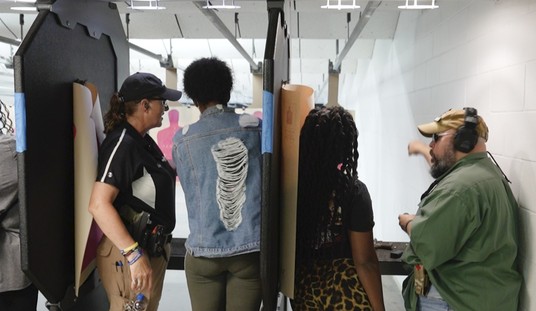It would be unfair to say that GPS monitoring is a law enforcement tool that's only deployed in Democrat-run cities and states. In both red and blue America, placing defendants on electronic monitoring instead of keeping them locked up awaiting trial has become more common in recent years. It saves money, and it allows individuals who have not been convicted of a crime to retain some measure of freedom until their criminal cases are resolved in the courts.
GPS monitoring may make sense in circumstances where the defendant isn't charged with one or more violent crimes, has no previous criminal history, or doesn't pose a threat to public safety. But in states like Illinois, where cashless bail is now the default for most crimes, those accused of serious and violent offenses are often quickly returned to the streets.
A Naperville man charged in connection with the shooting of another man is being released on GPS monitoring as he awaits trial.
Jermaine Badie, 18, appeared in court Thursday facing charges of aggravated battery with discharge of a machine gun and unlawful possession of a machine gun, both classified as Class X felonies. If convicted, Badie could face 12 to 45 years in prison.
The charges stem from an incident on Monday in which Naperville police responded to reports of a gunshot victim in the 100 block of Testa Drive around 8:48 p.m.
According to police, they found a man lying on the ground, bleeding from a gunshot wound to his chest. An investigation revealed that a fight broke out involving the victim and another person.
During the altercation, Badie reportedly pulled out a modified Glock with a silencer threading, a 30-round extended magazine, and a conversion switch, firing a shot that struck the victim's chest. The bullet missed his heart by a couple inches, striking his lung and exiting through his back.
Authorities said Badie then fled the scene and was later found nearby by officers.
Regardless of what we think about the constitutionality of Illinois' ban on "large capacity" magazines or the federal and state regulations regarding fully-automatic firearms, those laws are still enforceable in Illinois. In fact, we've been told that these laws are vitally necessary for public safety. So what happens when an 18-year-old who illegally possesses an illegally modified handgun equipped with an illegal magazine allegedly shoots someone? They're released without having to post a penny of bond after spending less than 72 hours behind bars.
But authorities will be keeping track of him though his GPS ankle bracelet, right? So what's the problem?
Well, as the Los Angeles Times detailed today, just because a defendant is wearing a GPS device doesn't mean they're being monitored.
After Nhazel Warren was charged this summer with carrying a gun in public, a judge released the 19-year-old on the condition that the Los Angeles County Probation Department track his movements with a GPS device.
When Warren was arrested three weeks later on suspicion of robbing an elderly couple, a different judge let him out again with another provision for GPS tracking.
But even with the court doubling down on Warren’s ankle monitor, prosecutors allege he went on to rob two more people in September and October.
In an attempt to track his whereabouts, Los Angeles Police Department detectives served a search warrant on the contractor that operates Warren’s GPS monitor. The company could not determine where he was at the time of the robberies.
Detectives apprehended Warren last week — his fifth arrest in five months, court records show. He has pleaded not guilty to charges of evading police, resisting arrest, carrying concealed guns in public, assault with a firearm and four counts of robbery. His attorney declined to comment.
There's a strong argument that Warren should have been held in custody after he was arrested on the robbery charges, even leaving out the fact that he's accused of committing two more robberies while he was wearing a GPS device. The fact that he was under GPS monitoring, though, is yet another example of the failure of GPS monitoring to prevent crime.
Illinois and California have some of the most restrictive gun laws in the nation, but while lawmakers in Springfield and Sacramento are making it harder to exercise your right to keep and bear arms, they're making it easier for violent individuals to keep preying on their communities even after they've been arrested and charged multiple times. No, not everyone who's arrested and charged with a crime needs to be locked up until trial, but if we really want to put some commonsense and reasonable laws in place, let's start by restoring some sanity to the bail and bond systems that Democrats have destroyed.









Join the conversation as a VIP Member